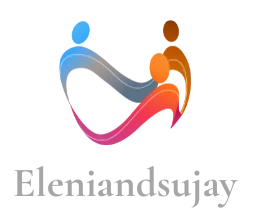Table of Contents
ToggleIn a world where kids seem to grow up faster than a speeding bullet, understanding child development is more crucial than ever. A child development bachelor’s degree isn’t just a piece of paper; it’s a ticket to unlocking the mysteries of tiny humans. Imagine diving into the fascinating world of how children think, learn, and play—while also preparing to make a real difference in their lives.
Overview of Child Development Bachelor Degree
A child development bachelor degree provides comprehensive insight into the growth and development of children from infancy through adolescence. Coursework typically covers areas such as psychology, nutrition, early childhood education, and family dynamics. Students engage in hands-on learning experiences through internships or fieldwork, applying theoretical knowledge in real-world settings.
Graduates emerge with skills that equip them for various roles, including early childhood educators, child life specialists, and social service workers. Programs often emphasize the importance of social, emotional, and cognitive factors in children’s lives. Understanding the interplay between these elements is crucial for effective support and guidance.
Many institutions offer the option to specialize in certain areas within child development, such as special education or child psychology. These specializations enhance knowledge and skills, tailoring the degree to specific career goals. Additionally, students learn to assess and evaluate the developmental milestones of children, fostering a deeper comprehension of individual needs.
Pursuing a child development bachelor degree often opens doors to graduate studies as well. Many graduates choose to further their education in fields like social work or educational leadership. Such advanced qualifications can lead to leadership roles in educational institutions, non-profit organizations, or government agencies.
Overall, a child development bachelor degree creates a strong foundation designed to support and enhance children’s growth, ensuring graduates positively impact future generations.
Core Curriculum Components

The curriculum for a child development bachelor’s degree includes essential courses that equip students with knowledge and skills necessary for working with children. The components foster a comprehensive understanding of child development.
Foundational Courses
Foundational courses form the backbone of the program, covering key areas such as child psychology, development theories, and family dynamics. Students explore how children grow physically, socially, and emotionally during these critical stages. Courses in early childhood education also emphasize the importance of effective teaching strategies. Additionally, students engage with subjects like nutrition and health, which play a crucial role in child development. Knowledge gained from these courses prepares students for various roles in the field.
Specialized Electives
Specialized electives allow students to tailor their education to specific interests and career goals. Options may include courses in special education, child psychology, and inclusive education practices. These electives provide deeper insights into unique challenges children may face. Students learn how to support diverse developmental needs through targeted curriculum. Furthermore, these courses often include opportunities for hands-on experience that enhances learning. Graduates leave equipped with specialized knowledge that sets them apart in the job market.
Career Opportunities
Graduates with a child development bachelor’s degree enjoy diverse career paths. These roles leverage their knowledge of child learning and development, guiding professionals toward impactful careers.
Potential Job Titles
Early childhood educator tops the list of job titles. Other common roles include child life specialist, family support worker, and developmental therapist. Additionally, positions such as school counselor and child psychologist have strong demand. Graduates may also pursue roles in community program leadership and childcare administration. Each title emphasizes a commitment to fostering children’s growth and education.
Work Environments
Multiple work environments exist for graduates. Schools provide a primary setting, where educators support children’s academic and social development. Child care centers focus on early learning experiences, while community organizations often address family and child welfare. Hospitals also employ specialists, especially for child life programs, to support health-related challenges. Collaborating with parents and educators in various spaces enhances children’s developmental support, essential for nurturing well-being.
Skills Developed
Graduates of a child development bachelor’s degree acquire a range of essential skills that enhance their ability to support children’s growth and well-being. These skills play a crucial role in various professional settings.
Critical Thinking and Problem-Solving
Critical thinking and problem-solving skills emerge as core competencies for graduates. Students learn to analyze developmental challenges children face. They gain the ability to evaluate situations from multiple perspectives, ensuring well-rounded solutions. Applying theories to real-world scenarios fosters a proactive approach to addressing issues. Graduates utilize these skills to develop individualized plans that cater to children’s unique needs. With a focus on evidence-based methods, they tackle complex problems effectively, promoting positive outcomes in children’s lives.
Communication Skills
Communication skills form a vital part of the education process. Graduates learn to convey information clearly to children, parents, and colleagues. They develop active listening skills, ensuring they understand concerns and feedback. By practicing various forms of communication, including verbal and non-verbal techniques, graduates enhance their ability to foster relationships. Collaborating with families and educators becomes more effective through these refined skills. Ultimately, strong communication enhances coordination in supporting children’s developmental milestones.
Pros and Cons of Pursuing a Degree
Pursuing a child development bachelor’s degree offers various benefits and challenges. Understanding these aspects helps in making an informed decision.
Advantages
A comprehensive curriculum covers essential areas like psychology and early childhood education. Graduates gain practical experience through internships, reinforcing their theoretical knowledge in real-world situations. Strong demand exists for roles like early childhood educator and child life specialist, providing ample job opportunities. Specializations in fields like special education enhance career prospects, allowing graduates to focus on their interests. The degree fosters critical thinking and problem-solving skills, essential for effectively addressing developmental challenges. Additionally, strong communication skills develop, enabling graduates to collaborate effectively with parents and educators.
Disadvantages
Pursuing this degree can involve significant financial investment. Tuition costs may create financial strain, especially if students take on debt. The job market can be competitive, with numerous graduates vying for limited positions in specialized fields. Some roles require certification or a master’s degree for career advancement, extending the time and resources needed for education. Emotional challenges can arise through working with children who face various difficulties, necessitating resilience and strong coping skills. Balancing work and further education may pose difficulties for many graduates.
A child development bachelor’s degree offers a robust foundation for those passionate about supporting children’s growth. Graduates emerge with a deep understanding of developmental theories and practical skills applicable across various settings. This degree not only opens doors to diverse career paths but also equips individuals to make meaningful contributions to children’s lives.
By focusing on critical thinking and effective communication, graduates are prepared to tackle the challenges of nurturing young minds. As the demand for skilled professionals in child development continues to grow, pursuing this degree can lead to fulfilling opportunities that positively impact future generations. With dedication and the right education, they can become advocates for children’s well-being and development.




